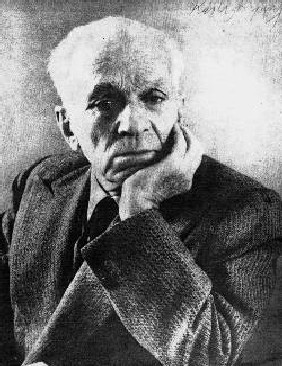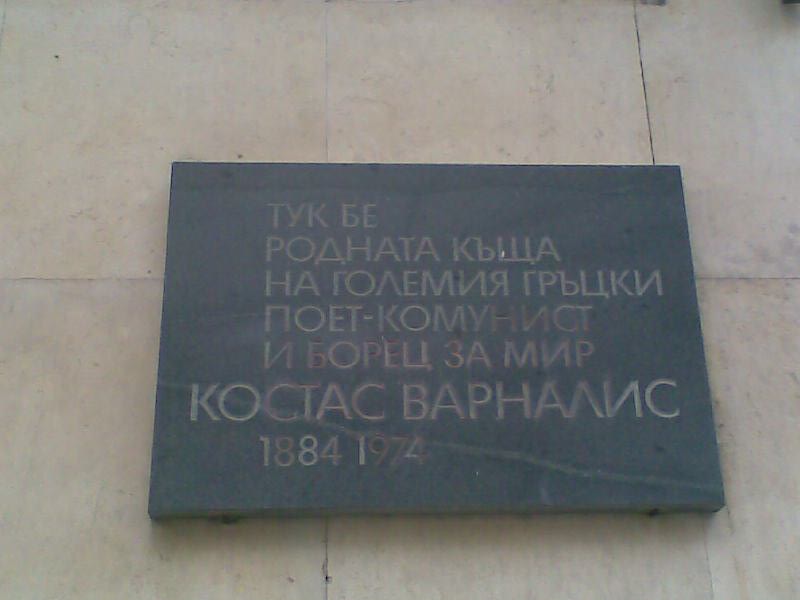<Back to Index>
- Physicist Charles Thomson Rees Wilson, 1869
- Poet Kostas Varnalis, 1884
- Queen Consort of Portugal Maria Pia of Savoy, 1847
Kostas Varnalis (Greek: Κώστας Βάρναλης, 14 February 1884 – 16 December 1974) was a Greek poet. Varnalis was born in Burgas, Bulgaria, in 1884. As his name suggests, his family originated from Varna. He completed his elementary studies in the Greek schools of Plovdiv and then moved to Athens to study literature at the National and Kapodistrian University of Athens. While there, he became involved in the language dispute, taking the side of the demoticists (vernacular) over the supporters of the katharevousa. After his graduation in 1908 he worked for some time as a teacher in Burgas, before returning to Greece and teaching in Amaliada and Athens.
During the following years, he worked as a teacher and part-time
journalist, also engaging in translation work. In 1913, he took part in
the Second Balkan War. In 1919 he gained a scholarship and travelled to Paris where he studied philosophy, literature and sociology. It was during his Parisian studies that he became a Marxist and
reviewed his ideas on poetry in theory and in practice. His political
alignment resulted in his being dismissed from his teaching position at
the Paedagogical Academy in 1926, and to be barred from any state
employment. Varnalis thus took to journalism,
a profession he practised until the end of his life. In 1929, he
married the poetess Dora Moatsou. In 1935, he participated in the
Soviet Writers' Conference in Moscow as Greece's representative. Under
the 4th of August Regime, he was sent to internal exile in the islands of Mytilene and Agios Efstratios. In 1959, he was awarded the Lenin Peace Prize. Varnalis died in Athens on 16 December 1974. Varnalis published his first poetic work at the Greek-language Plovdiv newspaper News of Aimos, under the pen name Figefs (Greek: Φηγεύς). His first appearance in Greece was in the magazine Noumas (Greek: Νουμάς) under his real name.

Μες στην υπόγεια την ταβέρνα, μες σε καπνούς και σε βρισιές, απάνου εστρίγγλιζε η λατέρνα όλη η παραία πίναμε εψές, εψές, σαν όλα τα βραδάκια, να πάνε κάτου τα φαρμάκια. |
Ιn the underground tavern, full of smoke and obscenities, as the Laterna* was wailing upstairs, we were all drinking yesternight,yesternight, like every other night, |
Laterna*=A musical instrument that produces music sounds by the rotation of a handle.